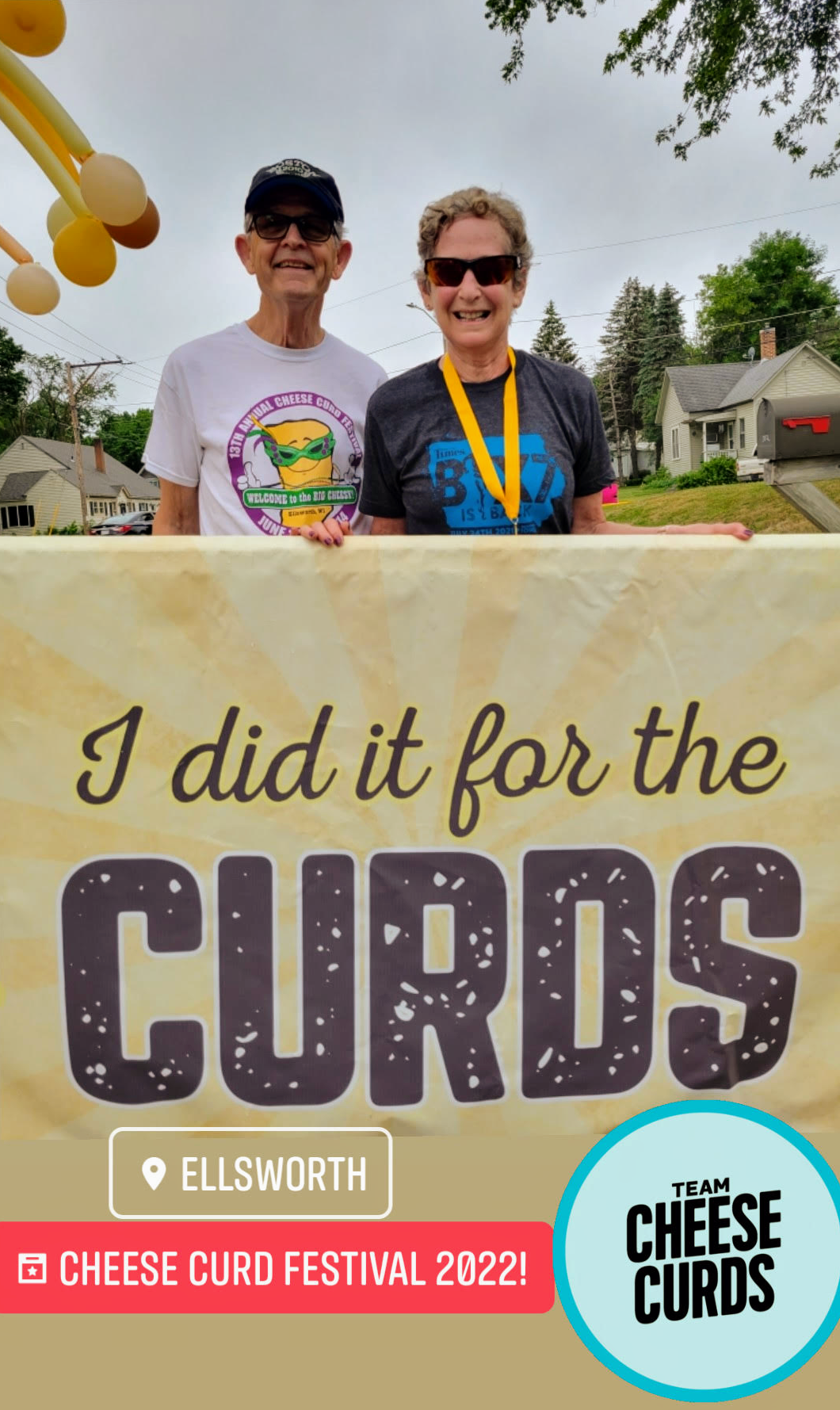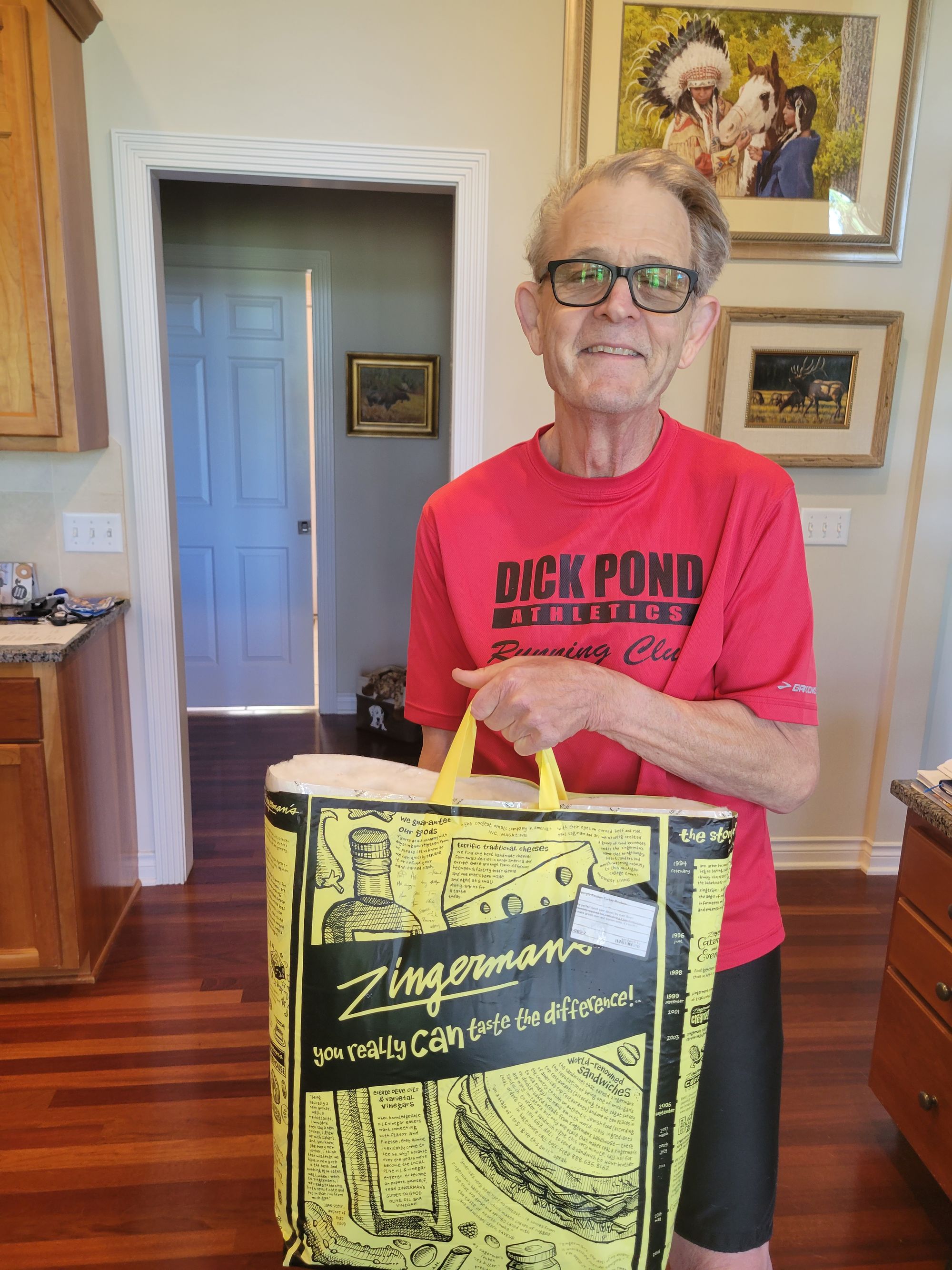A couple hundred yards into a 10K race and I have to stop. Gassed, no energy, short of breath, winded. Take your pick, they all mean the same. Melissa and I have been doing these races for over 40 years. The phrase “listen to your body” couldn’t have been more apropos. But I’m not ready to throw in the towel just yet. After all, this is the small-town race famous for awarding a pie to each finisher! So I trudge on, alternating running and walking. I take some comfort that this 10K starts and finishes at a hospital.
Pie or no pie, it becomes more and more clear that this is a bad idea. Not even quite half way, I am now bringing up the rear with only the EMT four-wheel drive behind me. I swallow my pride and ask for a ride back to the start line. With one final gulp, I accept the pie intended for the finishers. Melissa comes by her treat honestly and we head for home.
We pay a visit to our primary doctor on Monday and the onslaught of tests begin. Blood work, EKGs, ultrasound. Rather than packing for a much anticipated trip to Colorado, I am packing a toothbrush and headed to the local hospital in Hudson, Wisconsin. My stamina during a stress test on the treadmill is quite impressive for an “older guy” but also indicates an “abnormality.” This is enough to earn me an upgrade from the local hospital to the one in St. Paul with its reputation for treating heart issues.
My abnormality lands me an appointment with an interventional cardiologist the next day. So begins my education in all matters related to the heart (literally not figuratively). These are the docs who perform angioplasties, which essentially means running catheters up into your blood vessels in search of blockages. At least this is my rudimentary understanding as someone who spent a career teaching accounting, far removed from anything to do with the vessels and ventricles. As a buddy put it to me succinctly, his was an electrical issue -- mine was plumbing.
Intervention: that is what I needed. It came courtesy of a young cardiologist from Boston. As I lay on the table I couldn’t resist sharing that the highlight of my running career was qualifying for and completing the Boston Marathon. Whether he was impressed or not, his intervention amounted to placing stents into two of my arteries, one of which had major blockage. Keeping a good diet, a lifetime of running, no smoking and maintaining a healthy weight — none of these could trump what apparently was the genetic luck of the draw.
Intervention comes in many forms. Melissa’s nephew Dustin is a cardiologist in Detroit. How quickly the years go by. We were in New York forty-plus years ago when Melissa’s sister Lesley gave birth (Detroiters, but in NY when husband Barry was doing his Residency). We watched Dustin grow up, celebrated his bar mitzvah, several years later his wedding -- and just earlier this spring his daughter’s bat mitzvah.
Call it a second opinion or just reassurance, but what a blessing to have a doctor in the family, and an interventional cardiologist at that. Dustin’s intervention came in the form of numerous text messages and phone calls with both us and the cardiology team. His reassurances were just what the doctor ordered (pun intended).
Yes, intervention comes in all shapes and sizes. As she’s done for the 44 years of our marriage, Melissa has taken charge and seen to every detail of my recovery. And just a few days after returning home, a package arrived at our front door, encased in ice. Inside was nothing short of a traveling deli, straight from Zingerman’s in Ann Arbor. Everything needed to build the perfect turkey reuben sandwich -- from the Jewish Rye to coleslaw and pickles, all topped off with sauerkraut and Russian dressing. This intervention came with the love and wishes for a speedy recovery from Dustin’s parents, Lesley and Barry.
I have always subscribed to the loneliness of long-distance running. It fits perfectly with my introverted, accountant-trained personality. In fact, I’m convinced it was my lifetime of running that told me something wasn’t quite Kosher, that I shouldn’t be winded two hundred yards into a 10K. But still, it took intervention from lots of folks to put me on the road to recovery.
Maybe next year I will feel worthy of one of those pies at the finish line.
Gary Porter is a professor and textbook author and lives with his wife and rescue dog in Hudson, WI.


Comments
Sign in or become a Nu?Detroit member to join the conversation.
Just enter your email below to get a log in link.